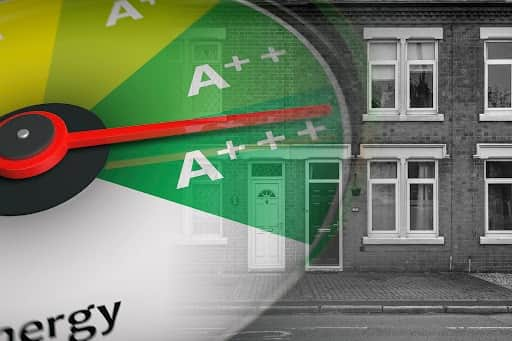Net zero: 80 million UK home windows should be replaced to meet government climate target, glass industry says
and live on Freeview channel 276
Glass industry experts say as many as 80 million windows in UK houses need to replaced to allow Brits to cut down on energy used to keep their homes warm - and meet government net zero target while they're at it.
A new report jointly published by the Glass and Glazing Federation (GGF) and British Glass says that nearly a quarter of the UK’s carbon emissions come from the residential sector. On top of this, it found that when it comes to heat loss in homes, the UK currently has the least efficient housing stock in Western Europe - meaning more of the warmth generated by heating systems is leaching out of draughty homes.
Advertisement
Hide AdAdvertisement
Hide AdThe industry report suggested found that replacing older double glazed windows with new ones that meet current standards could go a long way towards solving the problem, reducing heat loss in an already insulated home from 44% to 22%. These households could also save up to £395 a year on their energy bills by using less power for heating, the report said, and if all 80 million windows were replaced, it would be the equivalent of taking nearly 1.9 million cars off the road when it came to greenhouse gas emissions.
GCF's advocacy head Chris Beedel said: “We are in continuous discussion with the government about net zero targets and the positive contribution that would be made if older double glazed windows were to be replaced. As the government looks to achieve net zero, it is clear homeowners and our industry have a vital role to play.


“We are well aware of the current state of the economy, and as the government requires higher energy efficiencies from new windows, there needs to be real incentives for homeowners to make the necessary change to new windows," he continued. “The residential sector currently contributes to almost a quarter of the entire country’s carbon emissions. This needs to change – reducing emissions from households, and therefore improving glazing, is crucial in helping reach net zero.”
GCF president Natalie Little added that over the past 20 years, door and window technology had improved enormously. “Today’s double and triple glazing is light years ahead of what was available 20 years ago with windows installed today performing 50% better than old double glazing and 70% better than single glazing," she said.
Advertisement
Hide AdAdvertisement
Hide AdAlmost a quarter of the UK’s homes had double glazing that was at least 20 years old, she continued. "It’s like driving a 20-year-old car. It will get you from A to B but will not be as fuel and emissions efficient as a new car.
“Standards are constantly under review and we await the government consultation on the Future Homes Standard for new build homes which could see a move to triple glazing and much more stringent energy efficiency requirements.”
The government has honed in on greener ways to heat British homes recently, with a 50% increase in the grant available for households to install air source heat pumps taking effect from Monday (30 October) - meaning the amount of support available has increased from £5,000 to £7,500. The Department for Energy Security and Net Zero told PA it meant the cost of installing a heat pump could be below that of the average gas boiler for some households.
However, recent government u-turns on green policies have also caused concern about what it would mean for the UK's net zero by 2050 aspirations. The Climate Change Committee said the government’s shift away from earlier plans to phase out new gas boilers by 2035 and instead allow around 20% of households to be exempt could mean “residual emissions” bled across the 2050 target.
Comment Guidelines
National World encourages reader discussion on our stories. User feedback, insights and back-and-forth exchanges add a rich layer of context to reporting. Please review our Community Guidelines before commenting.
